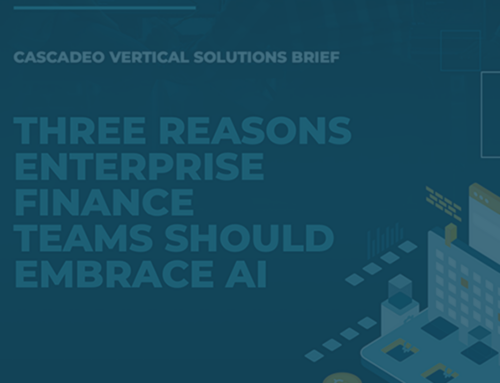
In 2024, we’re all about generative AI. Learn about the crucial relationship between generative AI and the emerging technology powering EVs in this guest post from Cascadeo CTO Jared Reimer.
Generative AI Can Accelerate EV Development and Adoption

The stark reality of climate change, once a contentious topic actively denied by the fossil fuel cartel, is no longer a matter of legitimate debate. This looming crisis, with profound implications for our planet and future generations, demands urgent action. The parallels between the fossil fuel industry’s historical stance on climate change and the tobacco industry’s tactics (delay, deny, distract, discredit, etc.) are worth contemplating.
Energy is the linchpin of modern civilization. It powers our homes, fuels our industries, and drives our transportation systems. Without it, societal collapse is not just a possibility, but a certainty. The idea of drastically reducing energy consumption, while ideologically appealing to some, ignores the practicalities of our global society and its developmental aspirations.
Transportation is a critical sector, accounting for 25-30% of global energy consumption. This encompasses road vehicles, aircraft, shipping, and rail, predominantly powered by fossil fuels. The combustion of these fuels not only emits CO2, but also releases harmful byproducts, impacting public health and contributing to the intellectual impairment of children, particularly in regions with minimal emissions controls.
However, curbing transportation is not a viable solution. People rely on personal and public transport for their daily lives, and a forced reduction would likely incite considerable resistance—even violence.
AI Can Support EV Efforts
In this dire context, the emergence of artificial intelligence (AI) is a beacon of hope. AI’s potential to revolutionize transportation is vast, from autonomous vehicles to advancements in battery chemistry and energy-efficient vehicle design.
The electrification of transportation, spearheaded by battery electric vehicles (EVs), is the most viable solution to the sector’s environmental impact. While exceptions like long-haul aviation may persist, the transition to EVs in other areas is rapidly gaining momentum. This shift is critical not just for reducing pollution but also for conserving finite fossil fuel resources.
In the year since generative AI became a household phrase, its impact has been profound, rivaling the significance of electricity’s discovery. This technology is reshaping transportation, enhancing everything from vehicle design to energy management.
AI and EV Synergy
The synergy between AI and EV technology is a cornerstone in our fight against climate change. AI’s applications in transportation are manifold:
Autonomous Vehicles: AI-driven self-driving cars and taxis are revolutionizing urban mobility, reducing the need for personal vehicle ownership and potentially decreasing traffic congestion and emissions.
Battery Technology: AI is accelerating advancements in battery chemistry, leading to more efficient, longer-lasting, and environmentally friendly batteries.
Energy Management: AI is enhancing smart grid technologies and vehicle-to-grid (V2X) systems, optimizing energy use and integrating renewable sources like photovoltaics and wind energy more effectively.
Sustainable Manufacturing: AI-driven automation and innovation in materials science are making the production of EVs more sustainable and efficient.
While AI and EVs are pivotal in the transportation sector, the broader energy landscape also requires transformation. Our next article will delve into the role of nuclear fission in sustainable energy production, a critical component of our overall strategy to combat climate change and transition to a cleaner, more resilient energy future. AI will be transformative in the adoption and acceleration of nuclear power, as well.
In conclusion, the convergence of AI and EV technology represents not just a technological revolution but a necessary evolution for our civilization. It’s a journey towards a more sustainable, efficient, and healthier world, and it is one we must embark on with both urgency and commitment.




